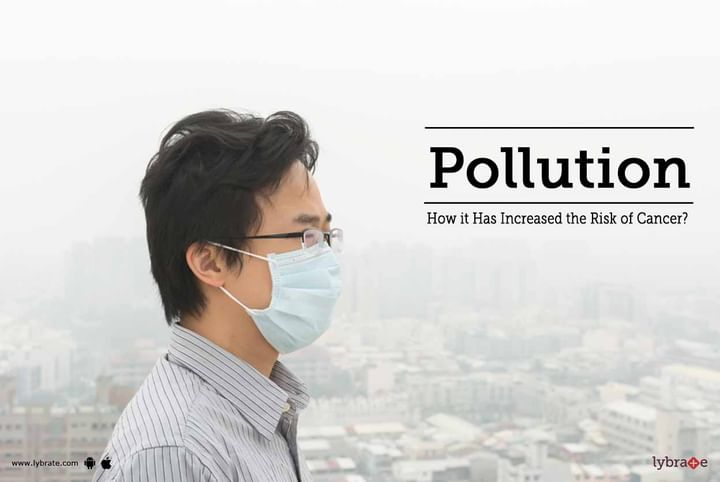Pollution - How It Has Increased the Risk Of Cancer?
Cancer today is not as rare as it once was. Today, cancer affects the young and old alike. One of the reasons for this is the pollution in particular air and water pollution that we are exposed to on daily basis.
The air we breathe in today is a mixture of smoke, particulate matter and noxious gases that causes great harm to our bodies. Amongst these, particulate matter that is smaller than 2.5 millionths of a metre is the worst.
These particle matters are emitted into the air from car exhausts, industrial exhausts, coal fires, wood stoves etc. While the body’s natural defences help keep larger particle matter out of the system by sneezing or coughing it out, smaller particle matter enters the body easily. These then get trapped in the lungs and enter the bloodstream. Particle matter has in particular been linked to increasing number of lung cancer cases. Apart from lung cancer, coal tar particle matter has been linked to bladder cancer, soot to oesophageal cancer and benzene and other pesticides to leukaemia.
Radon is another source of air pollution that is emitted from the ground. In some cases, radon can also be emitted through the water. As this gas decays, it releases tiny particles that when inhaled bombard the lung cells with radiation that can cause radiation. Smoking can worsen this effect and increase a person’s risk of suffering from lung cancer. Both first-hand and second-hand smoking have also been linked to breast cancer. Apart from trying to reduce emissions to lower air pollution, it is also important to clean filets of air conditions, etc. regularly to lower indoor air pollution. Preventing the smoking of tobacco in public spaces can also help improve air quality.
All pollutants emitted by us eventually find their way into the water we drink. Even if you are not drinking contaminated water, merely, showering or swimming in contaminated water can make your body more vulnerable to the carcinogens in it. Common water pollutants include arsenic, hazardous waste, animal waste, radon, chemicals and asbestos. Drinking water with concentrated amounts of arsenic has been linked to cancer of the lungs, liver, kidney and bladder while the chlorine used to treat drinking water increases the risk of bladder and rectal cancer.
To reduce the risks of cancer caused by polluted water, it is essential to reduce disinfectant by products by keeping water treatment facilities updated and promote green chemistry and alternative assessments to reduce pollution as a whole. If you wish to discuss about any specific problem, you can consult an oncologist.



+1.svg)
